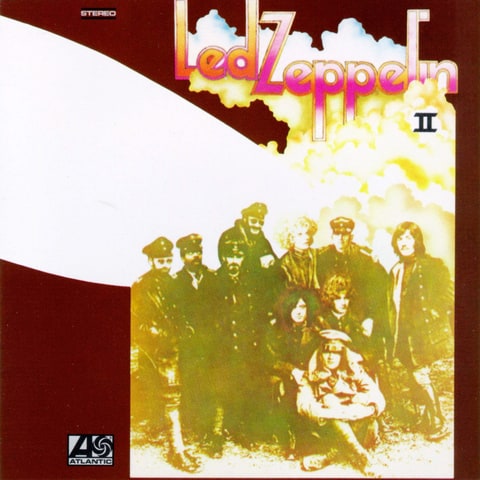
Led Zeppelin II (1969)

1. Whole Lotta Love
2. What Is and What Should Never Be
3. The Lemon Song
4. Thank You
5. Heartbreaker
6. Living Loving Maid (She's Just a Woman)
7. Ramble On
8. Moby Dick
9. Bring it on Home
Only ten months separated Led Zeppelin II from its predecessor, and yet the leap in tone, attitude, and sheer confidence feels like years. If Led Zeppelin I was the sound of a band introducing themselves with authority, then II is the moment they kicked the door off its hinges and announced their dominion. The playing is heavier, the production more focused, and the swagger—my word, the swagger—is everywhere. It’s as though they’d already seen the future, and knew full well they’d be sitting at the top of it.
The opening salvo, Whole Lotta Love, may be one of the most thunderous statements of intent ever committed to vinyl. Bonham’s drums hit like industrial machinery. Page’s riff is primordial, practically Neanderthal. And Robert Plant? He doesn’t sing so much as strut through the verses. This is no longer a band proving themselves. This is a band indulging the inevitability of their greatness. Had you been unsure of their standing after the debut, this track would have snuffed out any remaining doubt.
While Led Zeppelin I showcased the group’s range—psychedelia, folk, blues, acoustic—II narrows the focus and turns up the voltage. It is, at its core, a rock album: harder, faster, louder. That’s not to say their stylistic flourishes are absent—they’re simply woven more subtly into the mix. Bring It On Home, the album’s closer, begins as a smoky, Delta blues pastiche before detonating into another raucous juggernaut. Similarly, Ramble On teases with acoustic delicacy before switching gears entirely, the folk prelude giving way to a riff that crushes everything in its path. Page, here, is the master of the bait and switch.
There are curiosities, too. Thank You is perhaps the album’s most atypical moment, a tender ballad drenched in organ and late-‘60s sentimentality. It’s beautifully done, but one wonders if it wandered in from another record. Then there’s Moby Dick, a largely instrumental workout which, in lesser hands, might have resembled mere filler. But Bonham’s solo—melodic, muscular, and surprisingly musical—earns its place. One can easily imagine audiences transfixed by the live versions, which reportedly stretched his solo into a marathon event.
Track for track, it’s little wonder so many devotees cite Led Zeppelin II as the high-water mark of the band’s discography. There are no weak cuts, no filler, no missteps. Every track hits its target. And had the band chosen to tour this album in its entirety decades later, few would have questioned the decision. It’s not simply a sophomore effort—it’s a declaration of supremacy.
By the end of Led Zeppelin II, there was no longer any mystery about where this band was headed. They weren’t climbing the mountain—they were already on the summit, hammer of the gods in hand.
Go back to the main page
Go To Next Review